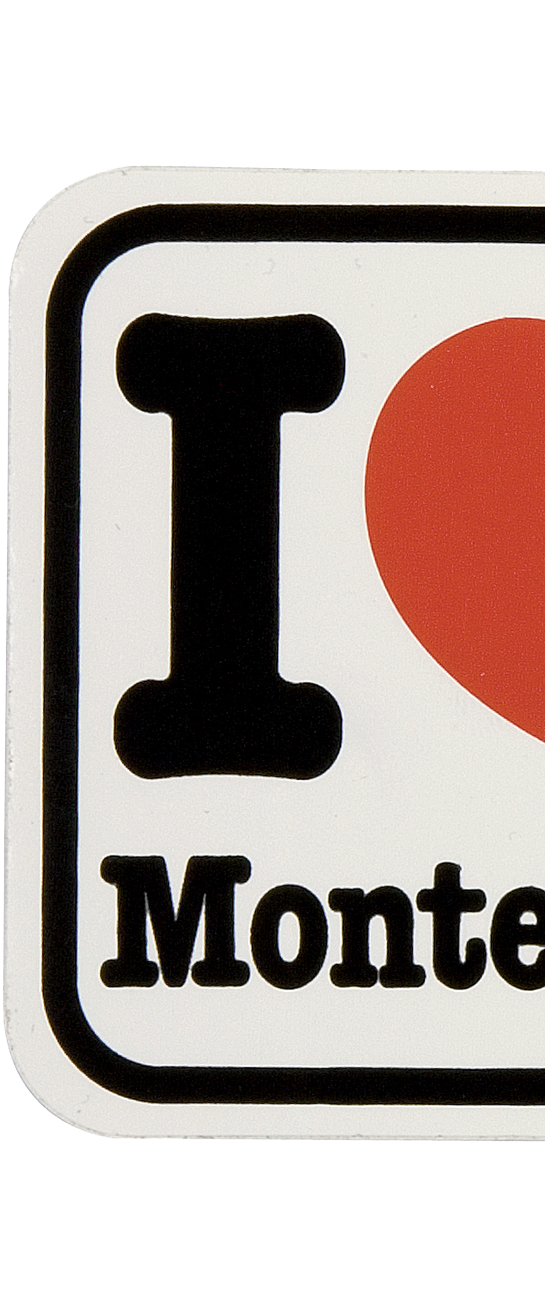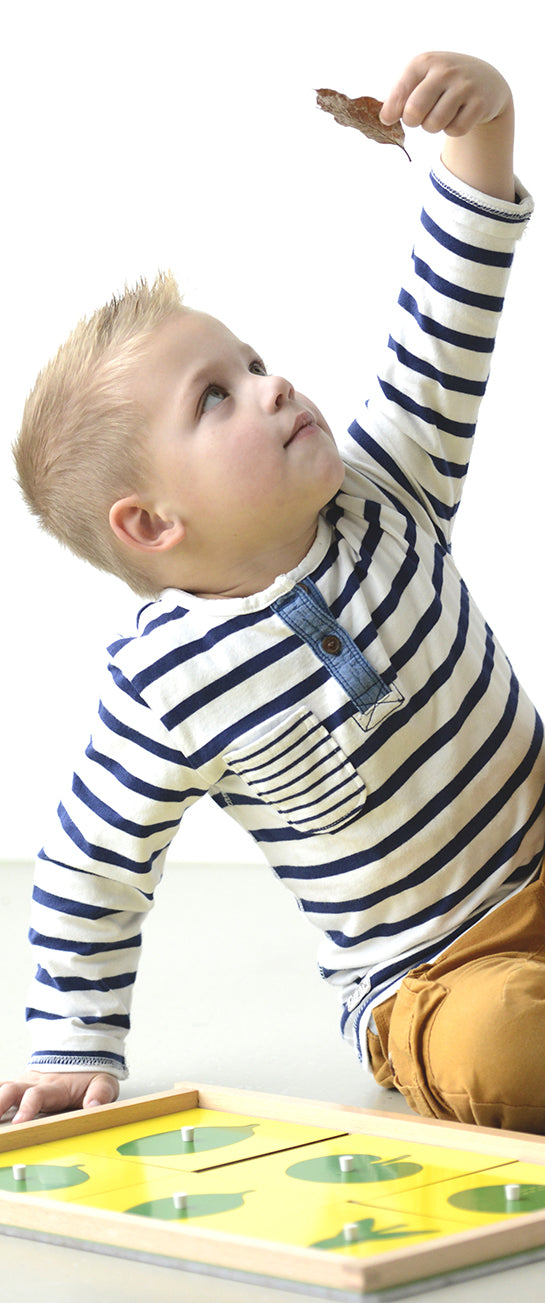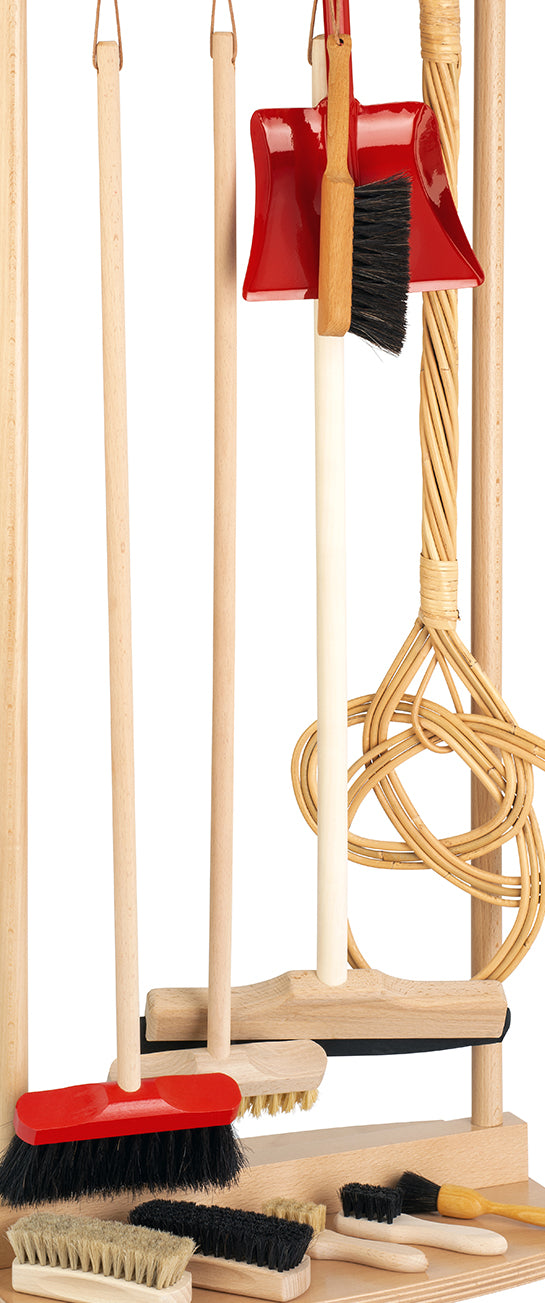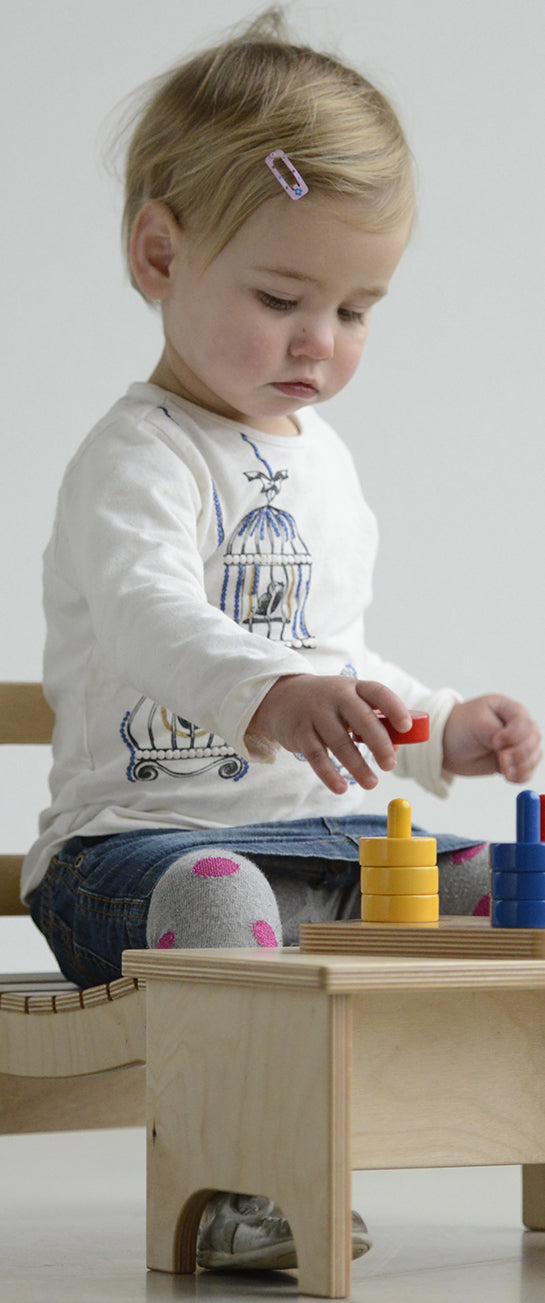
TAKE A STEP BACK!
It's a very serious pedagogy, almost a century old, a pedagogy described as alternative, even though it's a traditional education system in many countries, notably the Nordic countries.
It's a pedagogy in which we're lagging far behind in France, often through ignorance, but also because of a very rigid state and monopolistic education system in our country (without calling it a "mammoth" as some ministers have done...). It's not a pedagogy reserved for the rich, the handicapped or the autistic, it's a pedagogy for everyone!
Help me to do it alone
It's a bit simplistic and impossible to sum up such a pedagogy in a few words, but this sentence from Maria MontessoriMaria Montessori was a great lady of her time: one of the first female doctors in Italy in 1896, she had degrees in biology, psychology and philosophy, and was also a psychiatrist. She was a true researcher, a scientist, not a teacher. And that's undoubtedly what's going to help her, because you have to start by unlearning before you can learn with fresh eyes!
It all began when she observed that the handicapped children in her care were capable of a high degree of autonomy, self-discipline and concentration, as long as they evolved in an environment and with adapted materials (raison d'être of Montessori Spirit). His revolution may seem simple at first glance, but it's not always the case today - just look around you. His methods have enabled children who were deficient at the outset to awaken and develop better than so-called "normal" children, so there must be something wrong with the way so-called "normal" children are taught!
Montessori pedagogy is therefore a set of major principles that seem simple and obvious, but which require us adults to question many of the things we've been taught, to make an effort to relearn, to stop intervening excessively (even if we want to do the right thing and help the child), because we need to trust the child in his or her long apprenticeship, to let him or her blossom and discover at his or her own pace, as he or she sees fit: The child is not a vase to be filled, but a source to be allowed to gush forth."
But don't be fooled into thinking that Montessori pedagogy is synonymous with anarchy and that the child is left to his own devices! The role of the educator is essential in supporting the child's development, helping him to become as autonomous as possible, giving him self-confidence and self-building, and listening to him through expert observation. Yes, in Montessori pedagogy, it's the educator who listens and observes! To better guide and encourage, but never order, because education is not training.


SENSITIVE PERIODS AND RHYTHM
According to Maria Montessori, the child goes through various sensitive periods, phases of development that all children go through in their early years, and will not find again later on. It is therefore important to respect these sensitive periods as much as possible in the child, who will not only demand this or that from himself, but will also be much more receptive and will integrate them much more deeply into his mind. It's the role of the educator (but also of the parents) to observe these different periods, but also to respect them.
This goes completely against the grain of our traditional education: not everyone learns the same thing at the same time! Some children walk faster, others talk faster... how can we expect everyone to walk at 1? Do all children have to be potty-trained at 2 years and 11 months before starting kindergarten? Do all children have to be able to speak by the age of 2? Should we pass a law? No, they just don't have the same natural rhythm (and yet the vast majority of them will end up potty-trained, talking and walking). The real question is quite simple: our system, which is already having a hard time managing "the mass of children", can't afford to individualize children in its current structure and design... but is it the pedagogy that has to adapt to the system, or the other way round?
Children have different rhythms, without being qualified as "fast" or "slow", just as we adults have different rhythms in our lives, just as we do in a simple day.
FREEDOM AND SELF-DISCIPLINE
It may sound contradictory, but that's what it's all about. Montessori pedagogy doesn't mean letting our little monsters create anarchy in a classroom as they see fit. In fact, we call this room the "ambience", because this is where the work of the educator and pedagogy begins: all the materials are within the sight and reach of the children, thanks to appropriate furniture and preparation of the ambience. There is only one piece of equipment of each type, teaching the children the notions of sharing and respecting others, as well as managing their frustration. Children are instinctively drawn to the activity they have chosen from among those on offer. They're familiar with the activity they've already been introduced to, and are keen to try it out and devote the necessary time to it.
Thanks to the presentation and self-correcting material, children will be able to spot their own mistakes. They know they have the right to start again, but above all the right to make mistakes. The aim here is not to succeed, but to experiment again and again, to improve oneself. Indeed, how can you want to repeat an activity in which you've made a mistake and for which you've been castigated? You're bound to be afraid of failing again, so you won't dare, let alone improve. If the child succeeds, however, there's no question of bringing out the fanfare to congratulate him or her beyond measure. So just because he's drawn a picture (and it's your child...), don't cry "genius" and shout "what a beautiful drawing! Instead, ask him if he likes the drawing and what he wanted it to represent, for example.


INDIRECT ACTION
It is more profitable to act on the child's environment than on the child himself. Once again, we come back to a prepared and adapted environment. There's no point shouting at a child because he has trouble moving an adult chair that's 3 times too big for him, or because he can't get dressed on his own even though there are 3 zippers, 4 Velcro fasteners and 10 knots to put his pants on (or untie them to go to the toilet on his own and become "potty-trained" more quickly...).
In fact, if you don't shout, you don't talk in a Montessori school either: you speak in a low voice. The child will also naturally speak less loudly, and respect the environment and others. We don't tell him to put his things away, we put furniture within his reach and he'll tidy up naturally. If he dirties but has materials adapted to his size and strength within his reach, he'll clean up on his own too. All these indirect actions are important, and go hand in hand with self-discipline and freedom, autonomy and self-fulfilment.
LIFE EXPERIENCE & EDUCATION
We've already pointed out that children have the right to make mistakes, but they also have the right to try again, simply because they've missed some concepts and would like to review something in particular. Who hasn't seen an infant drop his rattle 50 times (50 times? You're patient parents, that's good...). A pediatrician will tell you that the child is already experimenting, looking at how the object falls, trying to understand why and how, trying to make it fall in a different way and repeating until he has understood and assimilated his experience. It's important to understand that the child is confronted with an adult world and adult concepts, and is discovering them for the first time!
To grasp this concept, children need to experiment with all their senses. To do this, they need materials that attract them with their beauty and colors, and that give them a pleasant sensation when handled. They need to measure, weigh, compare and count in order to integrate this concept and make it their own. For Maria Montessori , children can do a lot on their own. You have to let them experiment and respect them. By respecting him, he will respect others too, and by making him more sociable, the child will acquire inner discipline and self-confidence. Education in this sense is not just a simple sum of knowledge, but a real aid to life.
How Montessori Spirit fits into the Montessori pedagogy





